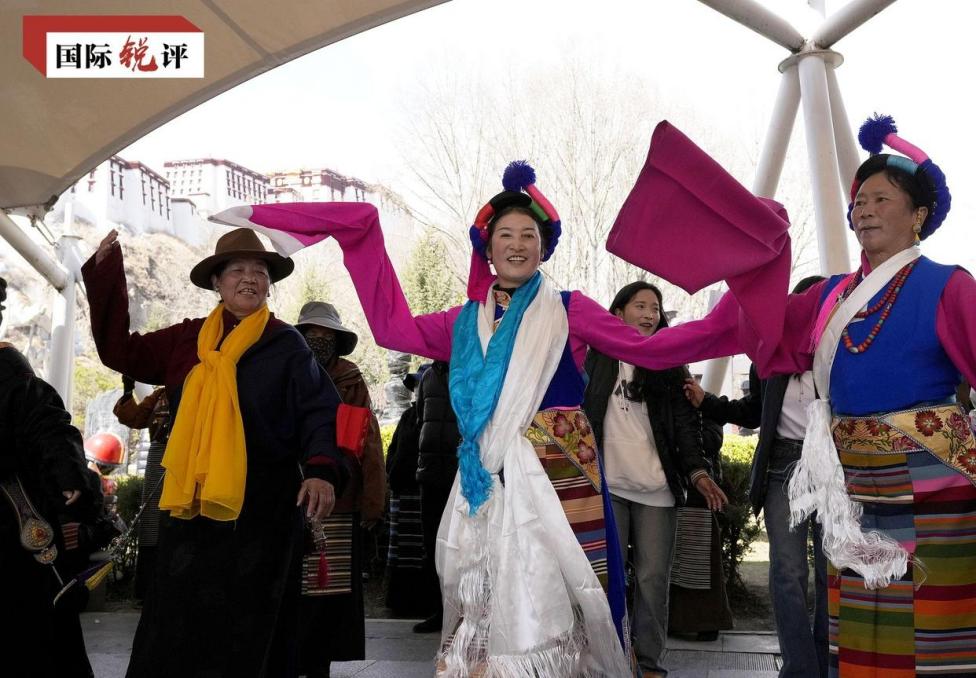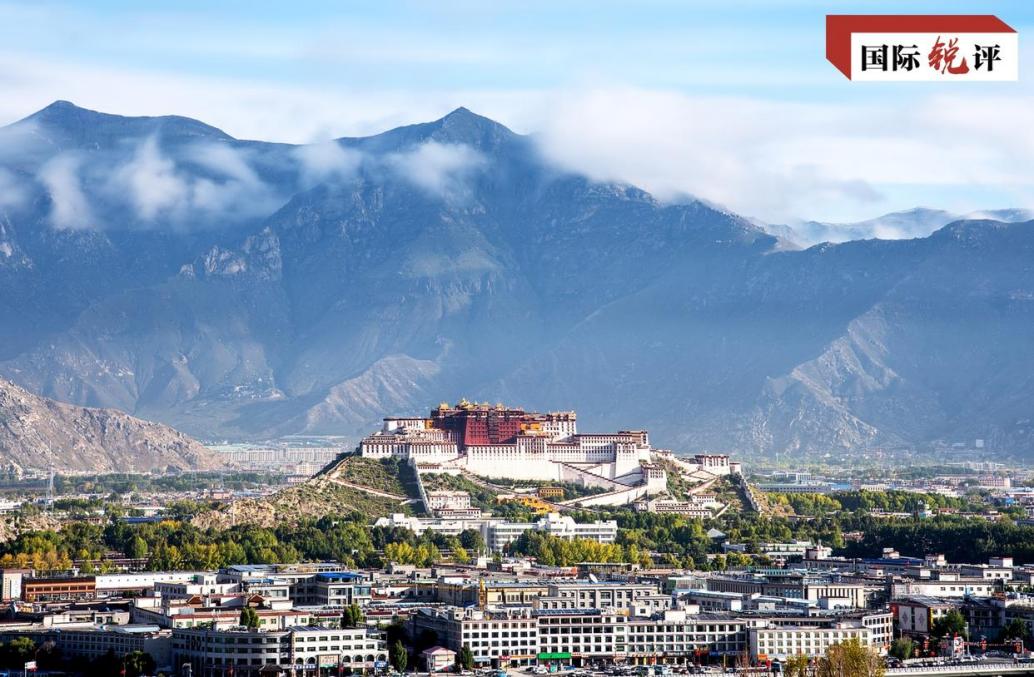Source:xzxw.com 2025-04-10
This year marks the 60th anniversary of the establishment of the Xizang Autonomous Region of China. On March 28, a white paper titled "Human Rights in Xizang in the New Era" was released by the Chinese government on the region's Serfs' Emancipation Day. With detailed data, it presents a comprehensive and objective picture of the tremendous changes that have taken place in Xizang over the past few decades, and exemplifies that "living a life of contentment is the ultimate human right" between the lines.
Human rights are not merely a noun, but a tangible experience and actual attainment. The rights to survival and development are fundamental human rights. Taking these two aspects as examples, let's look at what the local people in Xizang have experienced and gained since its peaceful liberation more than 60 years ago.
Survival is the foundation for enjoying all human rights. In old Xizang before its peaceful liberation in 1951, the life safety of the vast number of serfs and slaves was not guaranteed, and there was no freedom of person, property or thought. After the peaceful liberation, they completely changed their former status as "talking tools" and became masters of their own. The population in Xizang has grown from about one million to 3.7 million, and the average life expectancy has increased from 35.5 years to 72.19 years, reaching an all-time high.
Development is the key to achieving people's happiness. Compared to old Xizang, where the vast number of serfs and slaves toiled hard yet could not even guarantee their basic necessities, the lives of the people in new Xizang have undergone earth-shaking changes. By the end of 2019, all 628,000 registered impoverished people in the region had risen from poverty. In 2024, the per capita net income of those lifted out of poverty in Xizang increased by over 12.5 percent. In terms of education, from a literacy rate of over 95% illiteracy and a school enrollment rate of less than 2% for school-age children before the peaceful liberation, to nowadays where illiteracy has been basically eliminated and a 15-year publicly-funded education system has been fully established.

It is worth mentioning that to address the challenge of Xizang's vast territory and sparse population, as well as the difficulty for children in some agricultural and pastoral areas to attend school, some local schools provide boarding services to students in accordance with the national compulsory education law. Of course, whether to board or not is entirely voluntary, decided by students and their parents. Moreover, this boarding education system is not unique to Xizang. It exists in other provinces of China as well as in countries around the world. Some Western countries using this as a pretext to attack human rights in Xizang is completely unfounded. Rather, it is as if they are projecting their own inglorious history onto China and smearing Xizang. Colin Mackerras, a renowned Australian Sinologist, pointed out that Western media always claim to know the situation in Xizang, but in fact, they do not understand it. Their reports on Xizang are full of errors and one-sidedness.
Not only is survival guaranteed and development making progress, but traditional Tibetan culture is also receiving unprecedented protection. Walking on the streets of Xizang, people will find that public facilities, signboards, and advertisements are all marked in both the national common language and Tibetan. Moreover, three items—the Epic of King Gesar, Tibetan Opera, and Tibetan Medicinal Bathing—have been inscribed on the UNESCO Representative List of the Intangible Cultural Heritage of Humanity. With the development of technology, Xizang has also innovated methods for protecting ancient manuscripts: as of December 2024, over 67,000 leaves of precious ancient manuscripts have been uploaded to a global "cloud-sharing" platform, and nearly 13,990 damaged leaves of ancient manuscripts have been restored.
In just a few decades, how has Xizang undergone a transformation that spans millennia? This is thanks to the ruling party of China's consistent respect for and safeguarding of human rights, its commitment to a people-centered concept of human rights, its development of people's democracy throughout the entire process, and its forging of a path of human rights development with Chinese characteristics and Xizang traits.

File photo shows the distant view of the Potala Palace in Lhasa, capital of southwest China’s Xizang Autonomous Region.
Nowadays in Xizang, from major matters such as legislation in the autonomous region and the formulation of various plans, to minor issues like waste classification and property management, the public can be informed of and participate in these processes, and problems can also be resolved. At present, Xizang has instituted 790 outreach offices for deputies to people's congresses, providing effective platforms for the public to reflect social conditions and public opinions.
Between 2013 and 2024, the CPPCC Committee of the Xizang Autonomous Region received a total of 5,095 proposals, 4,920 were accepted and filed and the rest were given a formal response or reply.
Just in January this year, a 6.8-magnitude earthquake struck Dingri County in Xizang. About 10 minutes later, rescue aircraft appeared in the sky; within half an hour, demolition and rescue operations began in the epicenter area; in less than a day, networks, roads, and power supply were gradually restored. Most of the affected people were housed in tents or prefabricated houses and had access to hot meals. Such rapid and efficient rescue efforts have garnered praise from foreign netizens. This reflects the people-centered development philosophy and is a concrete portrayal of human rights protection in Xizang.
"The level of development in Xizang surpasses my imagination, and people here live a very modern life." This was the exclamation made by Ali Abbas, a senior reporter for City News Network in Pakistan, after his visit to Xizang. More and more people around the world are seeing clearly: the human rights in Xizang hyped up by anti-China forces in certain Western countries are merely a cover for their secessionist and disruptive activities. Whether Xizang has done a good job in human rights protection has already been answered by the data, and the details of people's lives also speak for themselves. No lies can obscure or erase this reality.
Reporter: CCTV
Translator: Zhi Xinghua, Liu Fang
Review: Hu Rongguo, Dong Xiuli
Copyright © Xizang Daily & China Xizang News All rights reserved
Reproduction in whole or in part without permissions prohibited
Index Code: 藏 ICP 备 05000021 号
Producer: Xizang Daily International Communication Center